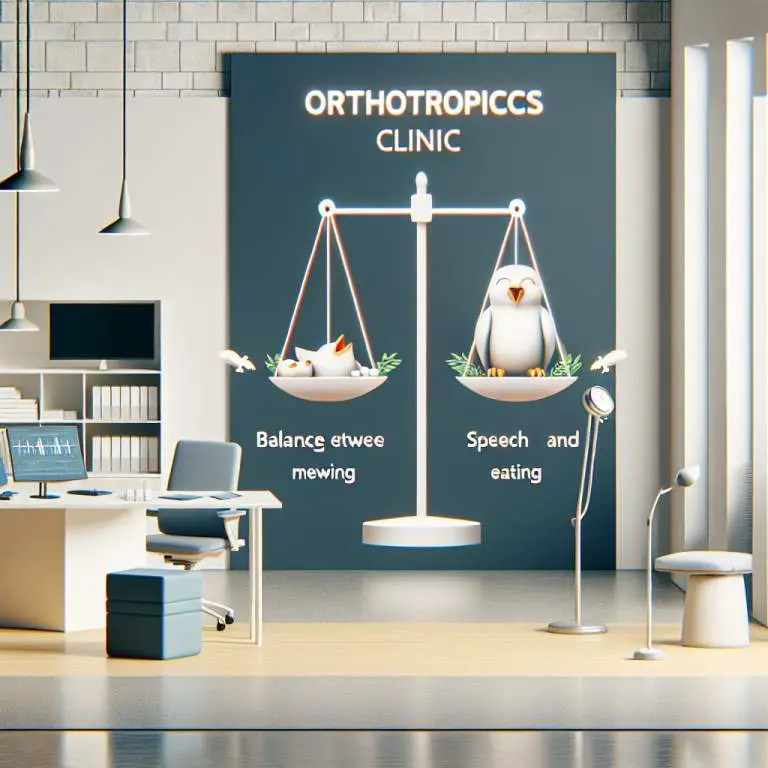What are the long-term effects of mewing mistakes?
Mewing mistakes can lead to long-term issues such as jaw pain, misaligned teeth, and improper facial development. If done wrong, it might also cause breathing problems or worsen existing conditions. It’s important to practice mewing correctly to avoid these negative effects and ensure healthy jaw and facial structure.

How does incorrect mewing technique affect jaw alignment over time?
Mewing is a practice that involves placing the tongue against the roof of the mouth to improve facial structure and jaw alignment. However, if done incorrectly, it can have the opposite effect. Over time, an incorrect mewing technique can lead to misalignment of the jaw. This happens because applying pressure in the wrong areas or in an uneven manner can push the jaw out of its natural position.
This misalignment doesn’t just change how your jaw looks; it can also cause discomfort and problems with chewing or speaking. Imagine pushing on a door from its hinge side; it won’t close properly. Similarly, if you’re pushing your tongue against your palate incorrectly, your jaw won’t sit right. It’s important to understand and follow the correct technique to avoid these issues.
What are the potential risks of improper tongue posture on oral health?
Improper tongue posture, like resting your tongue at the bottom of your mouth instead of the roof, can lead to several oral health issues. One major risk is developing a condition known as “open bite,” where front teeth don’t touch when your mouth is closed. This happens because incorrect tongue posture can push teeth outwards or prevent them from coming together properly over time.
Besides open bite, bad tongue posture can also contribute to tooth decay and gum disease. When your tongue isn’t positioned correctly, it might not help in cleaning food particles from your teeth and gums efficiently after eating. This lack of natural cleaning can increase bacteria buildup, leading to cavities and infections in your gums.
Can mewing mistakes lead to changes in facial symmetry?
Yes, practicing mewing incorrectly can indeed result in changes to facial symmetry over time. Since mewing involves applying pressure with your tongue against various parts of your mouth, doing it wrongly could exert uneven pressure on one side more than the other. This imbalance might gradually shift facial bones and muscles, leading to asymmetry where one side of the face looks different from the other.
This kind of asymmetry isn’t just about appearance; it could also affect function by altering how you chew or speak. For instance, if one side of your jaw becomes stronger or more developed than the other due to uneven pressure, it might lead to difficulties in eating or even speaking clearly.
How might incorrect mewing impact breathing and airway health?
Incorrect mewing techniques could negatively impact breathing and airway health as well. Proper tongue posture helps maintain an open airway by supporting structures around the throat and neck. However, if you’re not positioning your tongue correctly—like pressing it too far back—it could obstruct airflow during sleep or even while awake.
This obstruction can lead to snoring or more serious conditions like sleep apnea, where breathing stops temporarily during sleep. People with sleep apnea often experience poor quality sleep and may feel tired during the day. Therefore, ensuring correct mewing technique is crucial not only for oral health but for good breathing habits too.
| Incorrect Practice | Potential Long-Term Consequences |
|---|---|
| Improper tongue posture | Jaw misalignment, increased dental issues |
| Excessive force on the palate | Pain or discomfort, potential for altered palate shape leading to bite issues |
| Ignoring proper swallowing technique | Development of abnormal swallowing patterns, possible digestive issues |
| Lack of balance with facial muscles | Asymmetrical muscle development, potential changes in facial appearance not aligned with goals |
| Neglecting overall oral health care in favor of mewing only | Deterioration of dental health, including cavities and gum disease |
Are there any long-term effects on speech due to improper mewing practices?
Yes, incorrect mewing can lead to long-term speech issues. When the tongue is not positioned correctly in the mouth, it can affect how sounds are made. This might make it hard for someone to pronounce certain words clearly.
Over time, if the tongue keeps resting in the wrong spot, it could change the way the mouth and muscles used for speaking work together. This means that some people might start speaking differently than they used to. They could find it tough to talk fast or loud enough.
What consequences can arise from excessive force or pressure while mewing?
Using too much force when mewing can cause several problems. First, it can make the jaw muscles very tired. When these muscles are overworked, it might lead to pain around the jaw and even headaches.
Also, pushing too hard with the tongue against the teeth can move them out of place. Over time, this could lead to teeth becoming crooked or misaligned. It’s important not to use too much pressure when practicing mewing.
How do mewing mistakes influence dental health and tooth alignment in the long run?
Mewing incorrectly can have a big impact on dental health and how straight your teeth are. If the tongue pushes against teeth unevenly or too hard, it might cause them to shift position. This could make someone need braces or other dental work to fix their smile.
Besides moving teeth around, bad mewing habits could also lead to problems like tooth decay or gum disease. This happens because incorrect tongue posture might make it harder to clean all parts of your mouth well. Keeping your tongue in the right spot helps keep your mouth healthy.
Final Thoughts
Mewing needs to be done carefully to avoid negative effects on speech, jaw health, and how straight your teeth are. It’s more than just pushing your tongue up against your palate; doing it wrong can cause real problems.
If you’re interested in trying mewing, learning the correct technique is key. And remember, if you’re ever unsure about something related to your oral health, talking to a professional is always a good idea.






